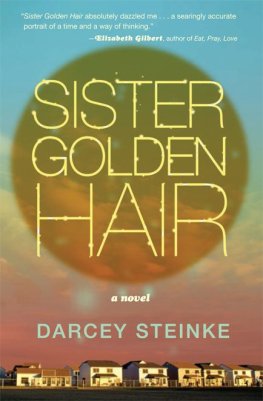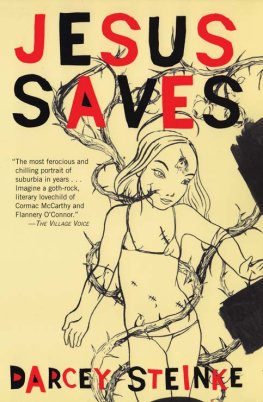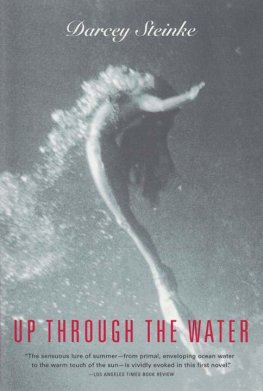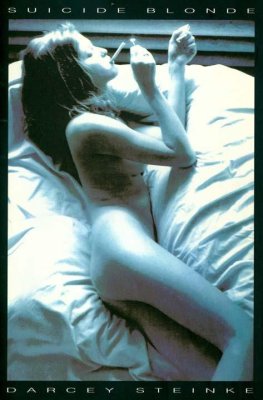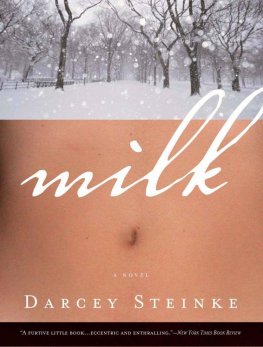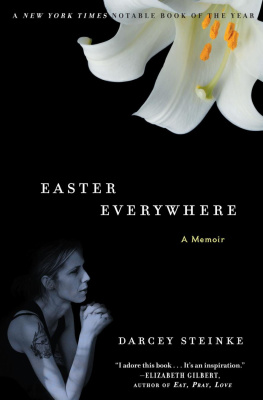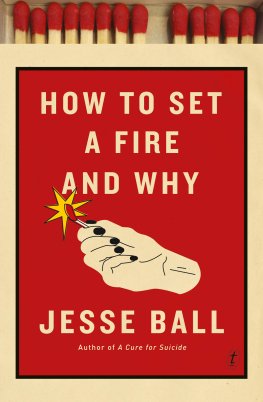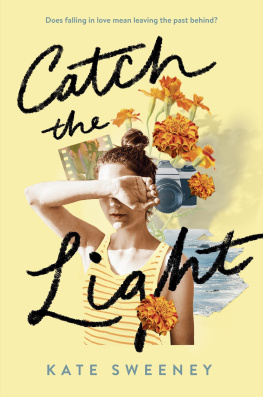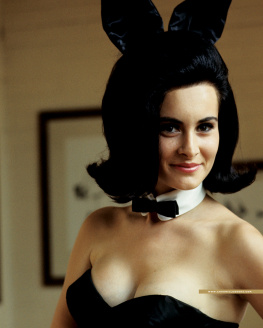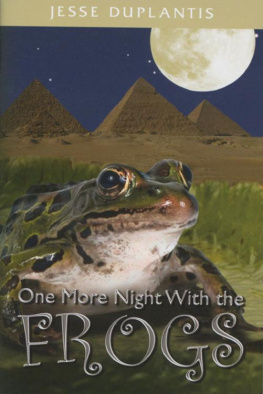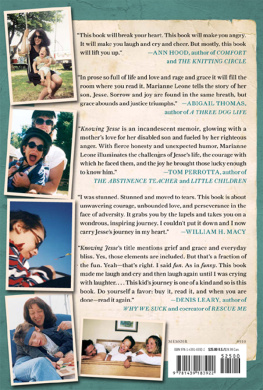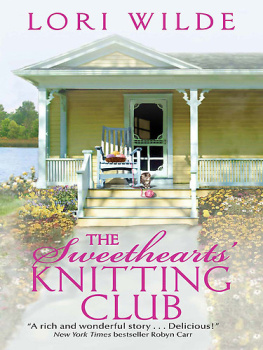Darcey Steinke
Sister Golden Hair
Ill seek out the things that must have been magic to your little girl mind.
THE MODERN LOVERS
The Vagabond Motor Lodge sat across the street from the Fiji Island restaurant, wedged between Johnnys Auto Parts and a gas station with a flying horse on its neon sign. Our first few days staying there felt like a vacation. In the morning, after Dad left for his new job, we swam in the motel pool, doing cannonballs off the diving board as my mother lay out under a blue canvas umbrella with white fringe, watching cars go by on the highway. In 1972, Id just turned twelve, and my family had moved for the third time in so many years. The August heat was ruthless on the bright cement, relenting only in bluish spots of shade. There was glamour in the way the heat slowed my body down and penetrated every moment with languor. In the late afternoon, when it was time for my little brother, Philip, to nap, we walked in our wet bathing suits across the parking lot, heat rising around us in visible waves. Our mother let us stop at the gumball machine outside the front office. Inside, the motel owner, a bald man who wore a Texas string tie, sat with his little dog, Mr. Buddy, on his lap, watching television.
We were moving again and the reason was, as my father frankly told us, that there were not many jobs for defrocked ministers. The members of First Methodist hadnt liked when my dad let his hair grow so long it brushed his coat collar, or that he traded his clerical collar for bell-bottoms and blue shirts with wide ties. They didnt like it when he encouraged the youth choir to sing Id Like to Teach the World to Sing accompanied by guitars rather than the organ, and they really didnt like it when he started a Gestalt workshop in the church basement and began preaching against Vietnam. When he held a commitment ceremony for Barry and Don, a parishioner complained. This led to a clergy trial, with a jury of nine Methodist ministers who decided that his actions were not compatible with Christian teaching. They read from the Book of Discipline, stripped him of his credentials, and from what I heard my dad, who refused to defend himself anyway, walked down the center aisle and into secular life.
After getting fired, Dad stayed in bed and read from a pile of old New York Review of Books that we dragged from the rectory to each new rented house. He read books about history, science, and psychology. Once he was over the shock, he started to get enthusiastic: church doctrine was draconian; wed figure out our own relationship to God. He gathered us together and explained that we were going to make a fresh start in Virginia.
It would have been nice if my mother was the strong, long-suffering type, but this was not the case; with every move she got a bit more unhinged. When we were supposed to be asleep, she cried to my father about how unhappy she was. Explained the she felt like a zero, a nothing. Listening to her, I tried to judge her freak-out level. She was at a 5 pretty much all the time. Brow furrowed, vaguely unhappy. Often, say, around the dinner table, she got to a 4 or even a 3 if my dad was sullen or my little brother complained about the food. Shed been at a 2 the whole drive down, but now she was at a 3, a good 3, not a bad 3.
When we got back to our room the owners wife had made up our beds, vacuumed, given us new towels. She was skinny as a skeleton as she pushed her cart, loaded with tiny bars of soap, glasses in white paper, and clean towels. Every day while she worked inside the rooms, jerking her bones around as she pushed the vacuum, I gazed at the cart until I got up enough courage to ask for more motel writing paper. She turned off the vacuum, gave me a sour look, and told me the stationery wasnt kiddie stuff, but she guessed I could have a page or two. She didnt know I was writing a long letter to Francie from A Tree Grows in Brooklyn, telling her about myself and also how sorry I was her father drank.
By midweek we still hadnt moved into our duplex in Bent Tree. We no longer walked down the highway, parking lot to parking lot, to Sambos for dinner, but instead ate American cheese sandwiches and chips from a big foil bag we bought at the convenience store.
After dinner we took baths and got into our pajamas, and our mother let us out in front of our room to play in the parking lot. Across the street the Fiji Island was lit up so we could see the huge carved Easter Island statues on either side of the bamboo doors. The sign out front, bookended by plastic palm trees, read PINA COLADAS TWO FOR THREE DOLLARS. For some reason nobody could explain, an old railroad car sat to one side of the parking lot. My mom knocked on the window from inside our room, pointed to the highway and shook her head vigorously. Then she leaned against the orange headboard and read a magazine, occasionally glancing to the television screen where Nixons head was huge and wiggly like the bobblehead dogs older people liked to put in the back windows of their cars.
In the half-light we ran around the motel to the Dumpster. Across a mangy field was a farmhouse that had wandered out of an earlier time period, gotten lost, and was now unable to find its way back. Fireflies floated over the field and above the farmhouse. Tiered up the side of the mountain were brick ranch houses, lit in two colors: incandescent gold if the families inside were having dinner, or indigo blue if they were watching television.
I wanted to crouch down in the field and pretend the Viet Cong were after us. But I could tell this game frightened Phillip. Whenever he was scared he pretended to look very carefully at some object on the ground, in this case chunks of parking lot gravel.
As it got darker the fireflies rose up and we went back around to the front of the motel to spy on the owner. Mr. Buddy sat delicately on the bald mans lap as if he were the dog of a French diplomat. The owner and his wife lived behind the office and we could see them through the doorway at the back; the wife rattled around the kitchen.
The parking lot was packed with cars, license plates from Alabama, Mississippi, even Florida and Texas. The backseats were jammed with coolers, stacks of magazines, and clothes hung from hooks above the back doors. A fat man who held his pants together with an expanse of rope had dragged a chair from his room and was sitting out smoking.
The fireflies multiplied; there were so many it was easy to reach out and catch one and hold it in the palm of your hand. Phillip got his Wiffle bat and swung at the bugs until he had a patch of glowing tails stuck to the plastic. He smeared the tails over his forehead so his skin glowed.
After we caught as many as we could in the ice bucket, I opened the motel-room door and told my mother we had a surprise for her. Now what? she said, letting the magazine shed been reading fall to the bedspread. She and my dad had yelled at each other earlier and now he was in the motel bar reading his book and drinking a beer.
I turned off the overhead light, then lifted the top of the ice bucket so the fireflies rose into the room and began to blink over the bed and around the night table. One flickered so close to my mothers face that I could see the white of her eyes.
How will we get them out of here? she said.
Though her voice sounded worried I could tell by the way her eyes followed the little lights around the room that she liked the fireflies. After a while she helped us trap the bugs again and let them go outside.
I had trouble sleeping. To try to calm myself I thought about our life before we left the church. Dad used to say prayers before every meal; he sat on my bed and prayed with me at night. There were Sunday services, Sunday school, funerals, baptisms. When I slipped into the church in the late afternoons, the altar was dark and beautiful. The crimson carpet, the blues and greens from the stained glass like a doomed kingdom under the sea. We visited the lonely, we collected cans of food for hungry people, coats for people who were cold. We prayed for sick babies. We were at the center of what I thought of as THE HOLY, and our every move had weight and meaning. But out in the world away from church, we floated free. What if my dad did not come back? What if he met a lady in the bar he liked better than my mom, one who wasnt always complaining about money? One who didnt tell stories about giant worms in New Guinea that lived in your intestines or housewives who laid their bodies down over railroad tracks? He might go off when the bar closed and wed never see him again. I sometimes imagined my father had another family. Rather than upsetting me, this gave me a certain respect for him. This second family would explain why he was always so preoccupied.

